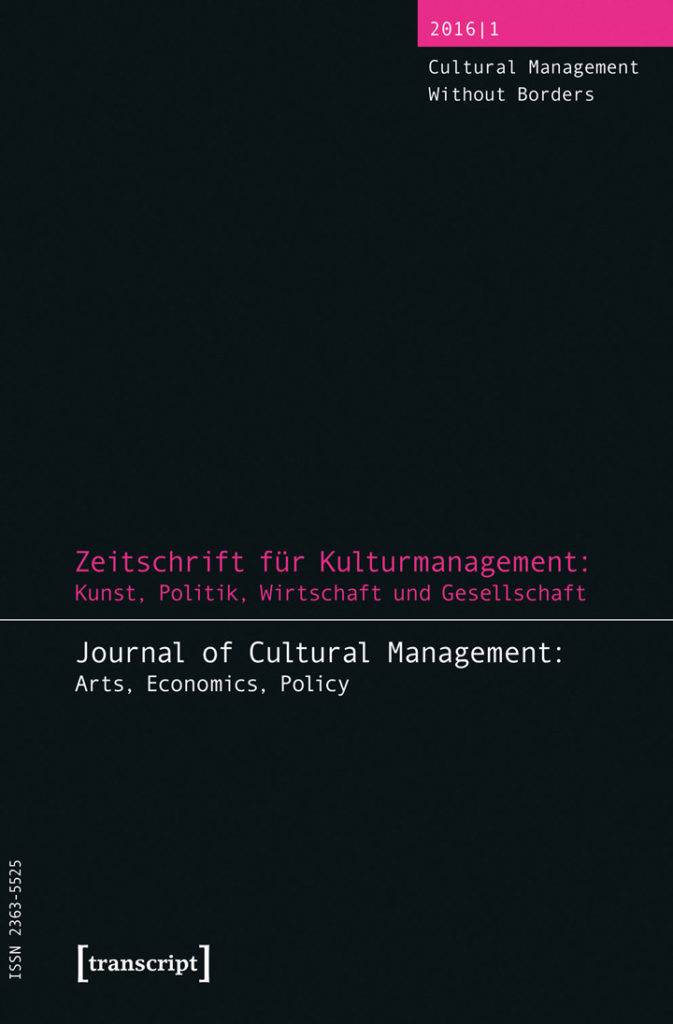Case Study
“Form is when the substance rises to the surface”
Practices, Narratives and Autopoiesis of the Festival dei Popoli
Abstract
This paper focuses on how film festivals research can be epistemologically framed and methodologically designed. ‘How can a film festival be observed?’ and ‘how can a festival secure its own survival and preserve itself over the time?’ are here the necessaries starting questions, for it urges one to look at how and where a festival is formed, in the moment when it takes shape. Drawing from the long story of Festival dei Popoli – International Documentary Film Festival, this paper aims to demonstrate that it is possible to identify three distinct objects of analysis: practices, narratives and autopoiesis, corresponding to three different but complementary ways of observing festivals (as interactions, narrations and organizations). This theoretical and methodological framework, inspired by systems theory, narratives and interaction analysis, can permit an uncommon observational perspective that is able to question what is often taken for granted.
Keywords
2016 (1)
Cultural Management Without Borders

Related Articles
Yearbook for Culture Management 2013
Research Article
Zwischen Management und Governance
Braucht Kulturmanagement eine Reflexionstheorie?Yearbook for Culture Management 2011
Research Article
Neue Beteiligungsformen im Kulturmarketing
Yearbook for Culture Management 2012
Essay
Yearbook for Culture Management 2013
Research Article
Discovering the meaningfulness of art in organizations
Experiences with add art Hamburg 2015Journal of Cultural Management 2018 (2)
Research Article
Analysis of the Market Environment in the Fields of Music Agencies
Yearbook for Culture Management 2013
Research Article
© 2025, Journal of Cultural Management and Cultural Policy
Keywords
- Aesthetics
- Higher Education
- Cultural Diplomacy and Foreign Cultural Policy
- Occupation
- Career and Professional Role
- Audience Development
- Audience Studies and Visitor Studies
- Visitor Motivations
- Business
- Covid Pandemic
- Democracy
- Digitalization
- Diversity
- Third Sector
- Empirical Aesthetics
- Development
- Ethics
- Evaluation
- Field Theory
- Festival
- Film
- Federalism
- Community Arts
- Societal Change
- Ideology
- Staging
- Career
- Communication
- Concert
- Creative Industries
- Creativity
- Crisis
- Culture
- arts organizations, cultural organizations
- Cultural Participation
- Cultural Change
- Fincancing The Arts
- Cultural Promotion Law
- Cultural History
- Cultural Management
- Cultural Economy
- Cultural Organizations
- Art Education
- Cultural Policy
- Cultural Production
- Cultural Sociology
- Art Education
- Cultural Understanding
- Arts Administration
- Cultural Industry
- Cultural Sciences
- Art
- Art Field
- Arts Research
- Artists
- Artistic Research
- Artistic Reputation
- Arts Management
- Arts Organizations
- Art education
- Arts Marketing
- Arts Administration
- Curating
- Leadership
- Literature
- Advocacy
- Management
- Marketing
- Market
- Media
- Methods Development
- Mexico
- Monumentalizing
- Museum
- Music
- Non-Visitor Studies
- Opera
- Orchestra
- Organization
- Political Expression
- Post-truth Politics
- Professional Role
- Audience
- Audience Development
- Law
- Government
- Role
- Socially Engaged Art
- Social Cohesion
- Social Change
- Social Cohesion
- Non-visitor Socio-demographics
- Socioculture
- State
- Symbolic capital
- Dance
- Participatory Justice
- Theatre
- Theatre Governance
- Theory Development
- Tourism
- Transformation
- Survey
- Entrepreneurship
- Urbanism
- Civil Society


